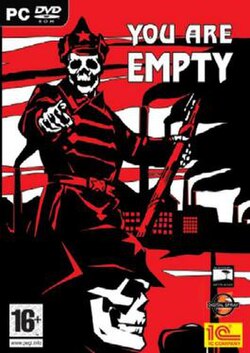Video games, movies, toys. 40k is the star wars of the capitalist bloc. The story of a vast beacon of civilization (The Imperium and Squats/Demiurge) sieged on all sides by howling Barbarians with crude and unrefined mannerisms (Orks and other savages like the Rak'Gol and the Skaven esque Hrud), brutal, degenerate, and cult like foes of all that is orderly (Chaos), silent remnants of a dead order (Necrons, Slaugth, the Slann and the like), a slavering collectivist horde from foreign lands of one mind and one purpose to consume all that is held dear (Tyranids), Exotic people enamored of progress, multiculturalism, and a strange ideology (Tau and other similar xenos), Post-scarcity folk who are similar, yet alien and often live in ways that would be considered Hedonistic (the craftworld and Harlequin Eldar), people who reject the ways of proper civilization and live in backwards ways and need to be civilized (Exodite Eldar), and utterly self absorbed "look out for number 1" hedonists who care nothing of sensible values (Dark Eldar and Corsair Eldar) holds a lot of appeal.Is that tabletop only? Or is there a much more expansive video game and movie segment of Warhammer?
The Craftworld and Harlequin Eldar are kind of stand ins for the Americans, people like us (Craftworld Eldar are similar enough to humans to interbreed and share all the same opponents as the Imperium), but with repugnantly different values and structure (Craftworlds don't really have governments, people do the jobs that they feel the urge to do and leave when they get bored, and for civilian needs, Craftworlds exist in post-scarcity; while polyamory and trysts are the norm among Eldar). Furthermore they're constantly interfering in business they shouldn't based on how they view the world and what they think must be done while not telling people what they're doing wrong in terms that make sense and on the level of nations; are portrayed as manipulative and lovers of espionage. They're also arrogant and holier than thou and highly averse to "unnecessary" casualties to a degree that seems soft and weak to the Imperium and the Squats (and despite this their "interventions" tend to cause massive death anyway).
Last edited:

